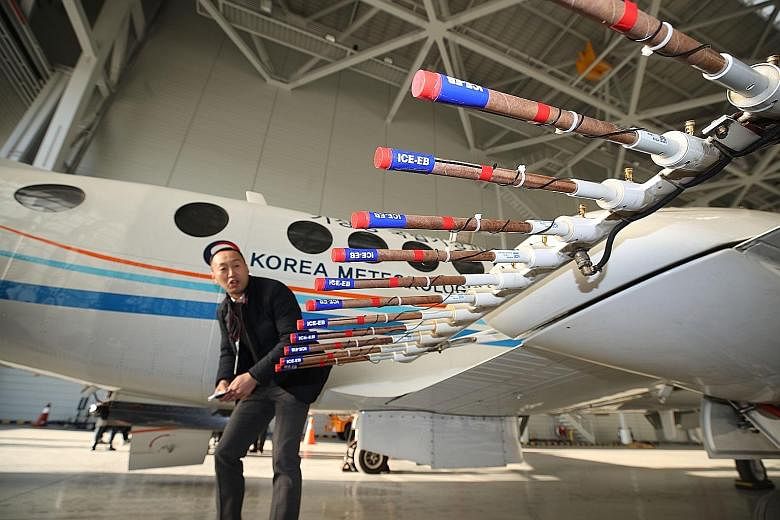SEOUL • Seoul yesterday sent aircraft over the Yellow Sea to carry out cloud-seeding experiments in an effort to tackle air pollution that many South Koreans blame on China.
Air quality in South Korea is generally better than in its giant neighbour, the world's biggest polluter, which is periodically affected by choking bouts of filthy air.
Beijing has been seeking to tackle the scourge, which causes widespread public anger, and a recent study found that urban levels of PM2.5 - the tiny airborne particles considered most harmful to health - had been cut by almost a third on average over four years.
But they remain far above World Health Organisation norms and pollution levels in South Korea sometimes spike as the prevailing winds blow PM2.5 particles, referred to as "fine dust" in South Korea, across the sea between the two countries.
Many South Koreans accused China when pollution surged for three days earlier this month and yesterday the Korea Meteorological Administration sent an aircraft to disperse silver iodide, a compound believed to cause rain to fall, over the waters, known as the West Sea in South Korea.
"The experiment is to see whether the technology works and is effective in washing away fine dust," a spokesman said, adding that it was the first of 15 such tests planned for this year.
She said Seoul had "no evidence that fine dust on the West Sea is entirely from China".
Last year, South Korea shut down five ageing coal-fired power plants in a bid to improve its air quality.
But ruling party lawmaker Shin Ching-hyun pointed out that when pollution levels rose two weeks ago, they were highest on Baengnyeongdo Island, 200km west of Seoul and the closest South Korean land to China. "China's claim, that it is not entirely to blame for South Korea's air pollution problem, violates the rights of South Koreans to a healthy environment," he said.
AGENCE FRANCE-PRESSE

